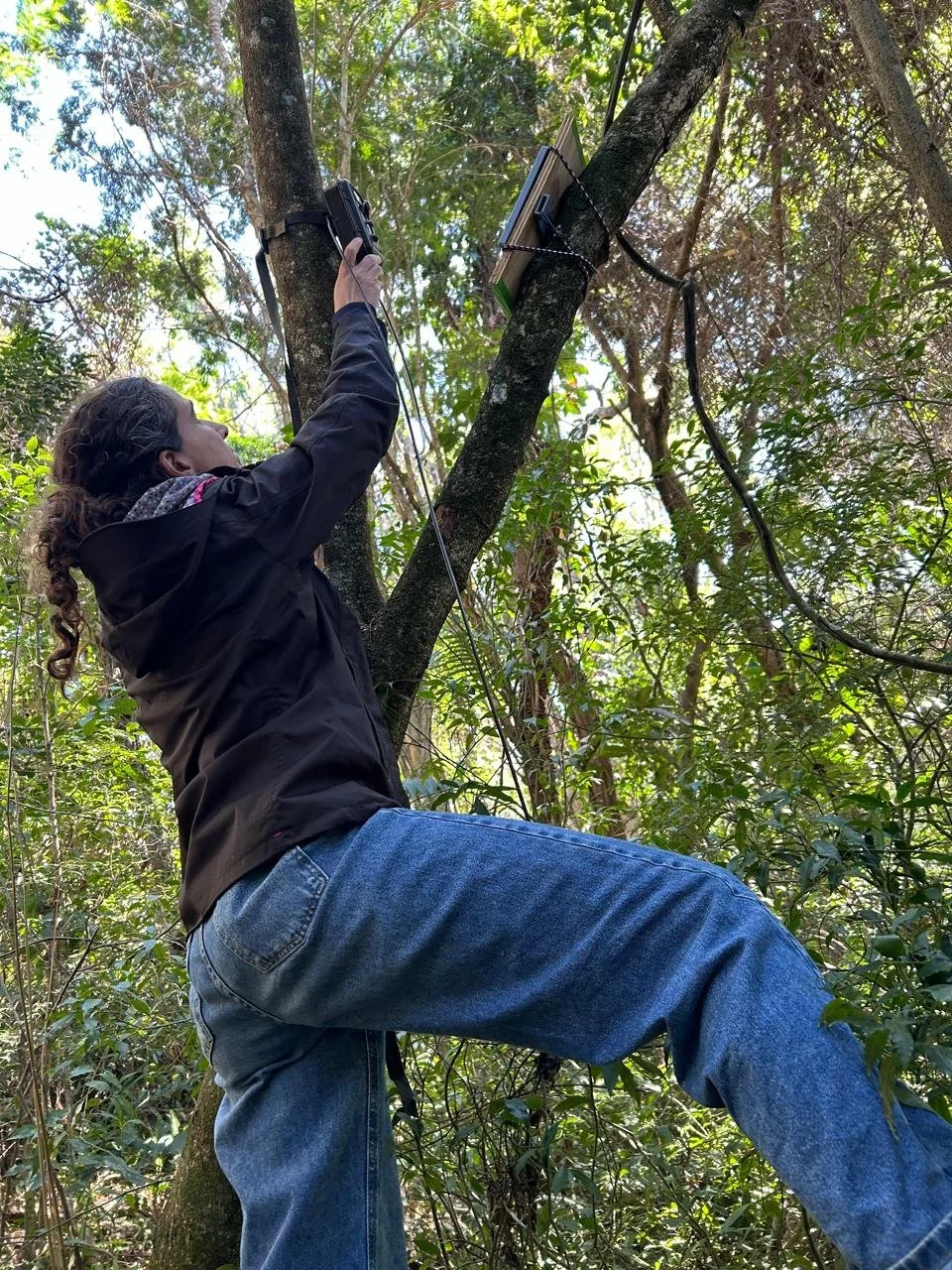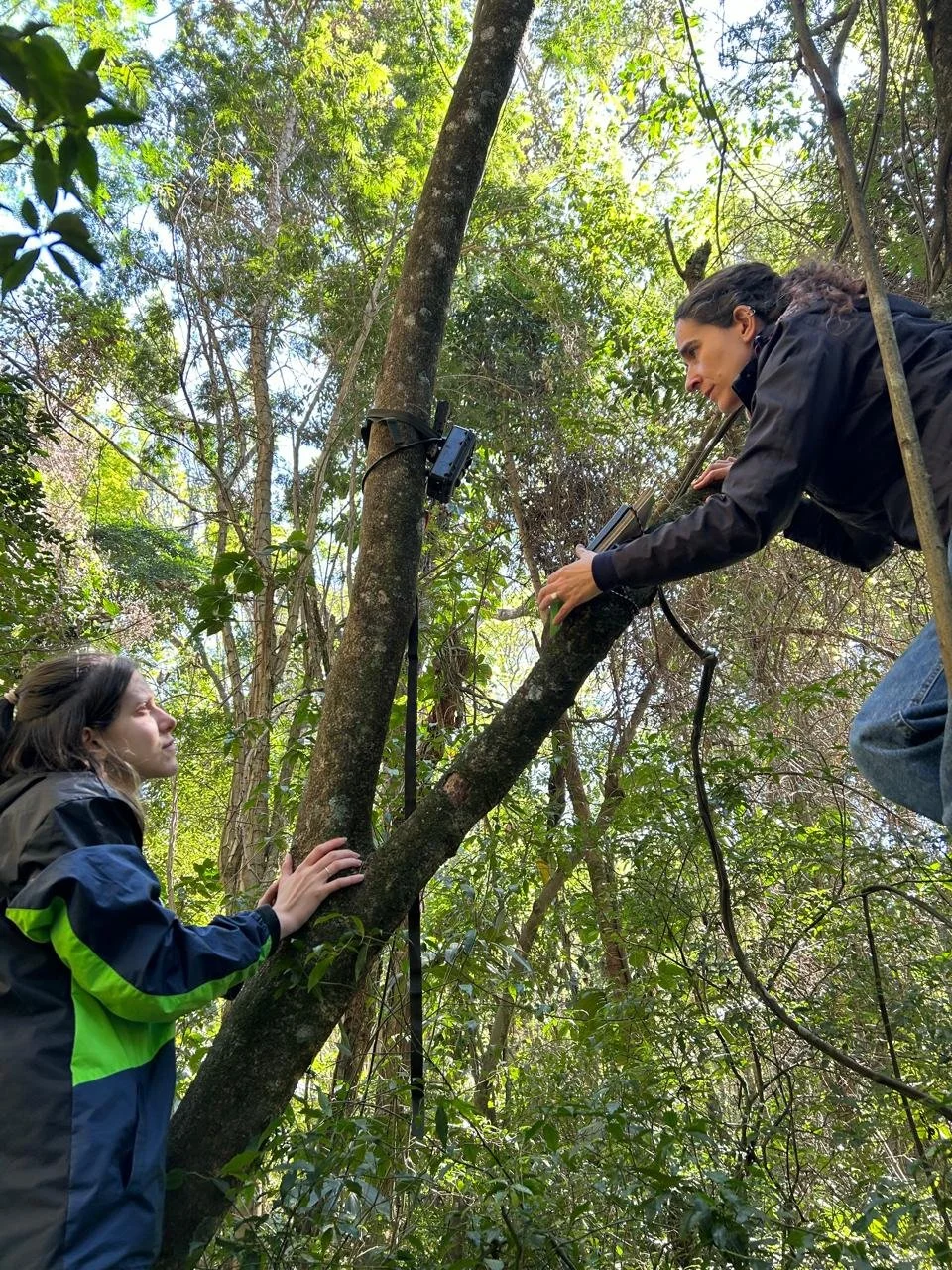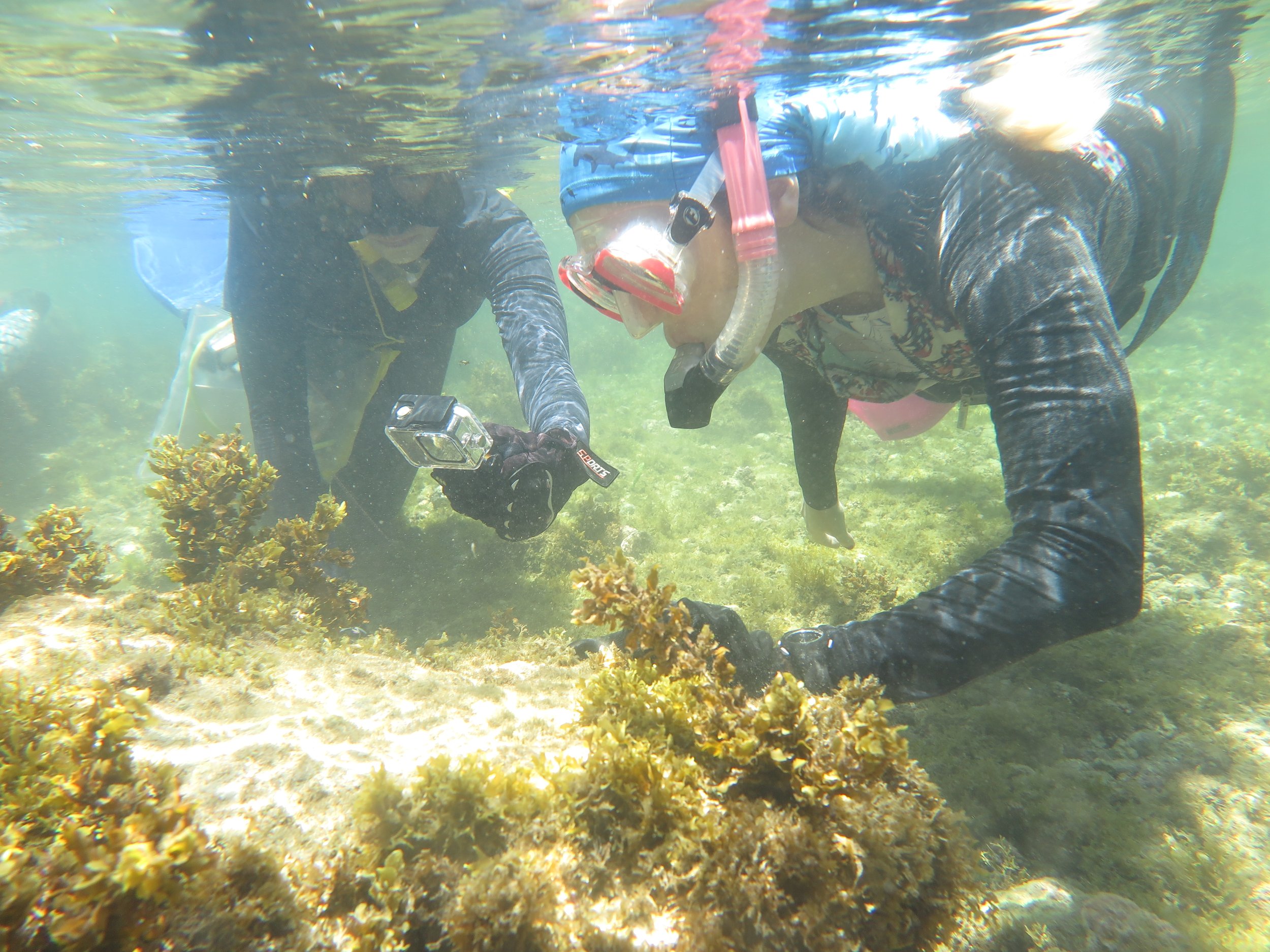
Meet our grantees
Wild Animal Initiative funds academic research on high-priority questions in wild animal welfare.
The goal of our grants program is to fund research that deepens scientific knowledge of the welfare of wild animals in order to better understand how to improve the welfare of as many wild animals as possible, regardless of what causes the threats to their well-being.
We showcase our grantees and their projects here and continuously update this page as new projects are added.
Validation of non-invasive measures for life stage in wild octopuses and AI-Assisted Behavioral Analysis
Grantee: Michaella Andrade
Institution: Federal University of ABC
Project summary
This project aims to develop non-invasive methods to assess the life stage and welfare of wild octopuses. The project will develop an AI approach that learns to recognize complex behaviors, such as body patterns and ventilation rates, in video footage. In addition, the project will develop a methodology to automatically measure the life stage of octopuses in videos and non-invasive in situ measurements of the distance between the octopuses’ eyes and eyeballs. The main goal is to correlate these metrics with different behavioral contexts to determine whether they can be used as reliable indicators of the animal’s affective state. In the long term, the project aims to create an automated tool that accelerates and improves behavioral data analysis.
Grantee: Michaella Andrade
Institution: Federal University of ABC, Brazil
Grant amount: $10,000
Grant type: Seed grants
Focal species: Octopuses (Octopus insularis)
Conservation status: Not evaluated
Disciplines: Animal behavior
Research locations: Brazil
Project summary
This project aims to develop non-invasive methods to assess the life stage and welfare of wild octopuses. The project will develop an innovative AI approach that automatically learns to recognize complex behaviors, such as body patterns and ventilation rates, directly from pre-recorded videos in the field. In addition, the project will develop a methodology to automatically measure the life stage of octopuses in pre-recorded videos based on our database and non-invasive in situ measurements of the distance between the octopuses’ eyes and eyeballs. The main goal is to correlate these metrics with different behavioral contexts to determine whether they can be used as reliable indicators of the animal’s affective state. In the long term, the project aims to create an automated tool that accelerates and improves behavioral data analysis, enabling large-scale studies of the welfare of wild octopuses.
Why we funded this project
This project extends a previous WAI-funded project and uses innovative approaches to analyzing behavioral data for welfare assessment.
Field testing a remote, non-invasive method to monitor wild animal welfare through salivary biomarkers
Grantee: Maristela Martins de Camargo
Institutions: Instituto de Ciências Biomédicas and FUSP
Project summary
Biological samples are necessary to establish baselines and benchmarks upon which welfare metrics can be developed, but collecting them is generally a stressful and invasive process. Our project aims to elevate the standard by which we collect wildlife samples by introducing a novel method of saliva collection that does not involve immobilizing — or even encountering — the animal being sampled. This project will isolate DNA/RNA from saliva samples of lowland tapirs to detect viruses, as well as health and welfare markers, exploring them within a comparison amongst two regions with varying levels of degradation and human-wildlife conflict and, we assume, associated variations in the welfare and health of wild animals.
Grantee: Maristela Martins de Camargo
Institutions: Instituto de Ciências Biomédicas, Brazil; FUSP, Rwanda
Grant amount: $45,380
Grant type: Seed grant
Focal species: None specified
Conservation status: Least concern
Disciplines: Physiology, animal welfare science, wildlife management, genetics/genomics
Research locations: Brazil and Rwanda
Project summary
Biological samples are necessary to establish baselines and benchmarks upon which welfare metrics can be developed, but collecting them is generally a stressful and invasive process. Our project aims to elevate the standard by which we collect wildlife samples by introducing a novel method of saliva collection that does not involve immobilizing — or even encountering — the animal being sampled. This project will isolate DNA/RNA from saliva samples of lowland tapirs to detect viruses, as well as health and welfare markers, exploring them within a comparison amongst two regions with varying levels of degradation and human-wildlife conflict and, we assume, associated variations in the welfare and health of wild animals.
Photos
Development of octopus mind in the wild: a behavioral, ecological and evolutionary investigation into sentience and emotional states in Octopus insularis juveniles
Grantee: Michaella Andrade
Institution: Federal University of ABC
Project summary
There is evidence that evolutionary pressures can cause behaviors with opposite meanings to develop opposite forms, the way a frown is the opposite of a smile. One way to understand the expression of emotion in animals may therefore be to identify pairs of behaviors that are opposites. In octopuses, which are increasingly being recognized as sentient, colors can be signals of emotional valence during conflict and other situations. Yet no study has tested whether octopuses have opposite pairs of color signals. This project will produce descriptions of evolutionary and behavioral patterns that reflect the emotional states and sentience of juvenile octopuses, which may contribute to the welfare of octopuses and other invertebrates.
Grantee: Michaella Andrade
Institution: Federal University of ABC, Brazil
Grant amount: $37,959
Grant type: Challenge grants
Focal species: Octopuses (Octopoda sp.)
Conservation status: Data deficient
Disciplines: Sentience, animal behavior
Research location: Brazil
Publications
Andrade M.P., et al. (2023). Assessing Negative Welfare Measures for Wild Invertebrates: The Case for Octopuses. Animals, 13(19), 3021. https://doi.org/10.3390/ani13193021
Project summary
Welfare refers to the quality of life of animals that possess sentient capacity and emotional states. Although the precursors of sentience were possibly present on the planet as early as 890 million years ago, the evolution of sentience is still poorly understood. However, cephalopods are increasingly being recognized as sentient, yet we do not know about this phenomenon in juvenile wild animals. In this sense, studies with wild animals can be beneficial for finding a wider range of ecological triggers and their relationship with behaviors.
There’s evidence that evolutionary pressures can cause behaviors with opposite meanings to eventually develop opposite forms, the way a frown is the opposite of a smile. One way to understand the expression of emotion in animals therefore may be to find pairs of behaviors that are opposites. In octopus, colors can be a signal of emotional valence during conflict and other contexts. Although researchers began to see this dimension in octopuses, no study has tested whether opposite pairs of color signals are present in octopuses. This project will produce descriptions of evolutionary and behavioral patterns that reflect the emotional states and sentience for juvenile octopuses, which may contribute to the welfare of octopuses and other invertebrates.
Why we funded this project
Although octopuses are widely assumed to be sentient at the adult stage, no studies that we are aware of have examined sentience at earlier life stages. As the vast majority of octopuses alive at any one time are juveniles, and octopuses have enormously high juvenile mortality, the question of when in their development sentience arises is particularly important. This project is also interesting because it will teach us about what the lives of juvenile octopuses are like and the extent to which welfare effects are mediated by personality traits.





